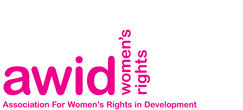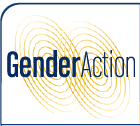|
 |
|
Haiti
Gender Action's Haiti Reports & Actions
Gender Action's advocacy reports and actions holding accountable International Financial Institution (IFI) investment's impacts on Haitian women, men and sexual minorities include:
Gender Action's newest report on Haiti,Gender Justice Scorecard: IFIs in Haiti, covering investments from 2013-17, represents our first analysis of how much Inter-American Development Bank (IDB) and World Bank projects integrate sexual minorities/LGBTQ+ issues. Every project in our random sample is analyzed and scored according to ten indicators including the extent to which the banks’ address sexual minorities/LGBTQ+ issues. Projects mostly fail to: (1) Provide measures to prevent Sexual and Gender-Based Violence (SGBV); (2) Create gender equal access to and gender-disaggregated data for project consultations and benefits; and (3) Approach gender from a human rights perspective. Some projects may cause forced resettlement and price increases for basic services such as education, electricity, and water, which will disproportionately harm women and sexual minorities. The Scorecard ends with a series of conclusions and recommendations addressing these and other issues.
January 2018
In this article Elaine Zuckerman explores harmful gender and environmental issues that proposed mining activities in Haiti would generate. Women, who primarily steward Haiti's land, forests, water and eco-systems that sustain their households could lose access to natural resources and livelihoods and suffer sexual violence triggered by potential mining. The Haiti Advocacy Working Group, which Gender Action co-founded and whose Gender and Human Rights Task Force is chaired by Elaine Zuckerman, published the article.
Haiti Submission to CEDAW,2016
Gender Action, together with the Bureau des Avocats Internationaux, Institute for Justice & Democracy in Haiti, and Li, Li, Li! Read submitted a 2016 report, Gender Issues Facing Women and Girls , that analyzes the extent to which women's rights in Haiti meets country obligations under the Convention on the Elimination of Discrimination against Women (CEDAW). The report addresses extremely low representation of women in political life, including in the 2015 elections; sexual harassment toward and derogatory treatment of women at work; the disproportionate impact of cholera on women; and problems facing rural women. The report recommends how to end these discriminatory practices.
Haiti Submission to CEDAW,2016
Gender Action, together with partners BAI, FAVILEK, FEMCADH, IJDH, KOFAVIV, KONAMAVID, , Li, Li, Li! Read, MOFAS, RFFA (acronyms are spelled out in the report), submitted a 2016 report, Violence against Women, Trafficking, Prostitution, and Exploitation by UN Peacekeepers, , that analyzes the extent to which women's rights in Haiti meets country obligations under the Convention on the Elimination of Discrimination against Women (CEDAW). Issues addressed include societal discrimination and widespread sexual violence against women, impunity for perpetrators of gender based violence and sex trafficking, and prostitution and sexual abuse by peacekeepers. The report recommends how to end these harmful practices.
This comprehensive advocacy report assesses IFI investments' gender sensitivity following the devastating January 2010 earthquake that caused around US$ 8 billion in damages. The World Bank committed US$ 667 million to Haiti for 21 projects from January 2010 through August 2013. The Inter-American Development Bank (IDB) committed nearly double that amount-over US$ 1 billion - across 151 projects in that period. Gender Action assessed a sample of IFI projects' gender sensitivity. The report finds a spotty record for both institutions in 'mainstreaming' gender into their operations - from project planning, to implementation, to monitoring and evaluation. Since both women and men must play an essential role if reconstruction is to succeed, the report concludes with recommendations for increasing projects gender sensitivity. Gender Action's accompanying Database of IFI Post-Earthquake Haiti Investmentscontains financial and other data about the over 170 investments approved by the World Bank, IDB and IMF.
2013
Claire Lauterbach, Elaine Zuckerman, Marie Paul Isabelle Théosmy and Falonne Conte October 2013 Officially open for business since October 2012, Caracol Industrial Park (PIC) has become one of Haiti's largest private foreign employers. US$ 424 million in development aid from donors including the IDB and the US government had been committed to the Park and ten related projects. The IDB alone spent over US$ 240 million supporting PIC. The donors and Haitian government promised that PIC would deliver 65,000 jobs but as of 2017 PIC had created less than 7,000 jobs. These are extremely low-paying jobs, filled by women who compose the majority of the mostly apparel assembly workforce.
This Gender Action report presents a snapshot of the Park's impacts on local residents and women in its first year. Gender Action's Claire Lauterbach spent two weeks with research assistants Isabelle Theosmy and Falonne Conte from the State University of Haiti conducting interviews and site visits in and around PIC. Although PIC led to several infrastructural changes like electricity and job creation, hundreds of farming households who worked sparse Haitian fertile land were displaced to build the PIC. The report highlights critical issues including: the displacement of land-users from PIC grounds and exploitative working conditions of female employees.
2020 Caracol Update: In January 2017 households whose land was grabbed without consultation for PIC construction filed a complaint with the IDB's Independent Investigation and Consultation Mechanism (MICI). In a rare IFI accountability victory, displaced farmers, especially, women, were awarded compensation including land, jobs and training at the end of 2018.
Gender Action and the Haiti Advocacy Working Group (HAWG), November 2012
Food insecurity, exacerbated by disastrous hurricanes and drought, threatened fragile progress achieved in Haiti following the 2010 earthquake. This 2012 report called on the donor community to refocus its agriculture and food security policies to help the Government of Haiti implement programs that mitigate the impact of natural disasters on Haitian agriculture and meet the food security needs of the nearly 2 million Haitian children, women and families who were going hungry in Haiti. This call to action, compiled by Gender Action and the Haiti Advocacy Working Group, makes policy and program implementation recommendations to both the international donor community and the Haitian government, to begin the process of rebuilding a sector that is vital to Haiti's reconstruction and development
Elizabeth Arend, March 2012
To commemorate International Women's Day 2012, Gender Action prepared this IFIs and Gender Based Violence Case Study that analyzes the extent to which World Bank and IDB shelter, sanitation and electricity investments address GBV in Haiti, as these projects have significant implications for Haiti's GBV epidemic. It also highlights an IDB-funded survey of GBV in Haiti, which took place before the earthquake, but we could not find any post-earthquake follow-up. While Gender Action applauds the World Bank's most recent investment to address GBV, our analysis demonstrates that neither the World Bank nor the IDB adequately address GBV within other critical post-earthquake investments. The case study underscores the urgent need for these institutions to fully implement their gender policies and explicitly address GBV across all sectors.
Claire Lauterbach, September 2012
Gender Action's case study, Haiti's National Housing Policy: Will it Work for Women? demonstrates that the Haitian government's World Bank-supported draft National Housing Policy risks burdening the poor, especially women, with expensive and unobtainable housing by relying on private solutions. The case study concludes with recommendations for strengthening the Policy to ensure that projects are affordable and accessible to all, especially the 1.5 million Haitians that remain displaced, almost three years after the January 2010 earthquake.
This case study is also available in French:La Politique Nationale du Logement: Aidera-t-elle les Haitiennes?
Elizabeth Arend and Lisa Vitale, November 2011
Gender Action's food insecurity case study examines the degree of gender sensitivity in World Bank and Inter-American Development Bank (IDB) investments in Haitian agriculture and rural development. Rural women, who constitute the majority of Haiti's small-scale and subsistence farmers, face significant gender discrimination in the agriculture sector. They also suffer disproportionately from rising food prices and increasing food insecurity. Our gender analysis shows that World Bank and IDB investments lack a human rights perspective and pay inadequate attention to gender inequalities that could hinder women and girls' ability to participate in and benefit from project activities. The case study also presents recommendations for IFIs, the G20 and civil society to promote women's rights and gender justice in Haiti's IFI agriculture and rural development investments.
Elaine Zuckerman, Elise Young and Lisa Vitale, Fall 2010
Gender, Agriculture and Rural Development Investments in post-earthquake Haiti demonstrates that the vast majority of World Bank and Inter-American Development Bank (IDB) post-earthquake investments in Haiti approved through mid-October 2010 represent lost opportunities to help Haiti's predominantly poor female farmers, prevent gender-based violence, and support gender-inclusive development.
Edited by Gender Action, Fall 2010
This final Haiti Gender Shadow Report (GSR), jointly prepared by many women's rights activists and published by Gender Action, provides crucial gender content that is missing from the Haitian government's World Bank-led Post Disaster Needs Assessment (PDNA), the operative blueprint for recovery that Haiti plans to implement.
July 2010
Gender Action sent President Obama a letter pleading for the US Administration to pressure the IFIs to cancel Haiti's IFI debt. This debt cripples poor Haiti from spending on health, water, education and other social services. Women and girls are the largest losers.
Within a month of sending our letter, the IMF cancelled most of Haiti's outstanding debt.
July 2010
This factsheet summarizes findings from Gender Action's analysis of IFI post-earthquake assistance. It demonstrates first that IFI assistance fails to address Haiti's escalating gender-based violence, and second that although IFIs have cancelled most Haiti debt, IFI debt still exists that impoverished Haiti cannot afford to repay.
To Help Haiti, Upend Aid Habits, and Focus on its Women
Blog, February 2010
Elaine Zuckerman, President of Gender Action and the former Inter-American Development Bank Programs Officer for Haiti, suggests what needs to be done to make sure that aid to Haiti does not repeat the mistakes of the past and especially targets women.
This blog was originally published in February, 2010 by
 and and

This blog also appeared in the Fall 2010 print version of Oxfam's quarterly publication Gender and Development
|
© 2012 Gender Action, All Rights Reserved
|
|
|
|
